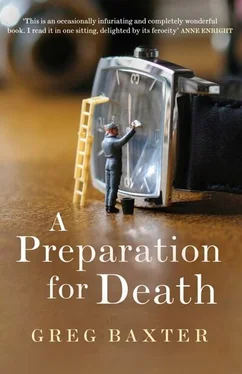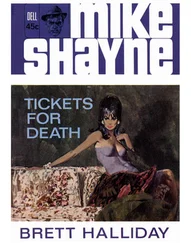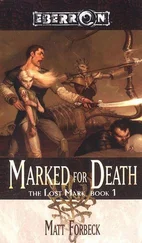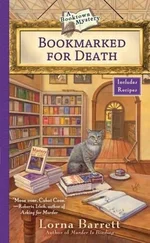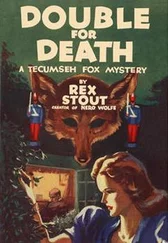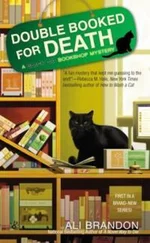That first night, after a short meet-and-greet at the main house, the nighthawks of the conference retreated to Rebel’s Rest, a large, old log cabin situated in the midst of a vast green lawn, for drinks. We met Marc and Adam, two writers in their early thirties who weren’t from the South, who seemed like pretty cool dudes, and when a little weasel-of-a-poet kicked us out at midnight, we stole a bunch of cans and drank on the street until four a.m. Drinking on the street in Sewanee is a serious offence, we would learn, and over the rest of the ten days we were frequently chased around the campus by university police and ratted upon by the kinds of people who saw our behaviour as a disgrace to the cause of art and decency. Rather than try to win toleration, we started a sort of parallel conference with a few like-minded young guys. Brent was more charming about it, so I was singled out as the Bad Seed. It was easy to single me out — not just because I was dislikable, but because I was the nobodiest of nobodies. Within a couple of days, the conference organizer wouldn’t even speak to me, since I was sleeping through all the nine a.m. readings, or missing them and going straight to Rebel’s Rest for midday Bloody Marys and beer, and to talk to Barry, who sat on the back porch chain-smoking and reading.
We met officially in the workshop he was co-teaching with the experimental writer Padgett Powell, though Barry missed some sessions, including the one in which my story was discussed, because he was so unwell. But at the Rest I sat beside him and listened and drank. Sometimes there were a lot of us, sometimes just a few. He made no sense — he spoke like a character in one of his stories, the kind of man who says he is crucified by the truth . These were not conversations but officiations of his wisdoms, sometimes profound, sometimes ludicrous, and often repetitive, but what did I care? The other writers, obsessed with status, treated me with loathing and suspicion. (William Gay was also friendly, but nobody could understand him at all.)
Around the university campus, there were long and peaceful trails through the woods. I imagine it was very tranquil until we got there, a hundred writers, to pervert it. One day a few of us were walking around out of boredom when we came upon a group creeping quietly and reverently through Nature. There is nothing sillier in the universe than an excursion of mediocre Southern poets on a nature trail. You feel as though you have interrupted a dozen unborn compositions exploding sentimentally in their hearts, and there are probably dogs in them, or Confederate ghosts.
There were softball games on a few afternoons, and this was the most popular of all activities. The teams usually fielded something like twenty-five players, which meant that everyone had a zone of about five square feet for which they were responsible, so the outfielders — dozens of them — mostly just stood dozily and watched balls fly over their heads. The dissident wing attended after a few hours at the Rest, by which time I had to close one eye to bat or field; otherwise I would see ten of everything. I narrowly avoided a fist fight when Powell, a writer I admired very much for Edisto and Typical , but who treated us like insects, knocked into me and the ball fell beside us. There was a lot of laughter from the gallery. We took a long look at each other, Powell and me. He was a bulldog of a man, and if he got his hands on me I was finished. But I could jab and dart. I had the speed and the reach. I’m certain his long look meant: Why are you even here? Mine meant: I had that fly ball. Anyway, what spectacle could have been more absurd than that fight? And if I touched him, I might as well have packed my bags that second. Brent ran over from right field and led me away.
There were readings in the afternoons, by participants, and in the evenings, by faculty. We attended a few afternoon readings, often because someone from our parallel conference was reading, and we went to all the faculty readings (I was alone in my willing-ness to skip them). Afterwards, drinks and barefaced networking stretched late into the night. Big salivating circles formed around agents and editors. One woman who was publishing a collection of sweet, unremarkable stories — stories for the broken-hearted girl in all of us — had taped a sign to her back that read: Blurb my book! Lots of people wrote promissory signatures on her sign. She would get down on all fours so the guys could scribble legibly, and they would make humping noises. (One member of the faculty, we knew, moved aspiring female authors through his bedroom with promises of recommendations and introductions.) When I tried to make conversation, people looked right through me; only when it was discovered that I worked for the Southern Review did I gain a little respect. Suddenly people wanted to know things about me. Suddenly my bad habits seemed romantic. Our group of dissidents swelled. We probably had enough for a softball team.
I should have realized, during those ten days in Tennessee, that my failure as a writer was inevitable. Dave Smith had stressed the importance of an awareness of purpose, an acknowledgement of audience. He believed, like his spiritual mentor, Robert Penn Warren, that to write was to commit a moral act, that a poem was a vote. I tried to apply this. I asked of all my stories, Is this moral? I had no idea. Who was I voting for? What were the issues?
I liked Dave. A lot of people in Baton Rouge didn’t. He was caustic and impatient, and when he spoke about art, his voice acquired the gravity of a black hole. If you were young and impressionable, and especially if he liked you, you could not escape its pull. At LSU, the position of Dave’s protégé was a position of difference, since everyone else in the programme was a protégé of Andrei Codrescu, who was as much rock star as writer, and a strong believer in the principle that more of anything was better, especially writing. Dave would have preferred a world in which ten people wrote. I was seduced by the idea that I might be one of them.
At LSU I had seen Dave as a renegade; now I saw him in his element, among the high priests of a deep-voiced, wrinkled, belligerent tradition. I had duped myself into believing that an apprenticeship could lead to individuality; now I felt less like a protégé and more like a factotum. Two years later I would write the novel only I could write, and he hated it: he told me to begin a new book immediately. I had failed him — as I was always going to, if I was to become myself. He feared that I had grown too insulated, that I was writing for an audience of zero. But what was the alternative? Taping stickers to my back? Fellating editors and agents? Writing books that suited people?
Brent was disgusted with the scene as well, but it didn’t ruin him. He simply ignored it. He would go on to achieve all that is expected of decent men — have kids, build a business, never stray from his promises, never desire to inflict harm on the weak or insipid or boring or arrogant, or the generous. His books, which have been modest successes, would reveal, through his characters, a humanity in him that I lacked utterly.
∗
Seven years later, I am in my dining room in a northern suburb of Dublin, writing. My marriage ended a few months ago. The dining room and living room are at the top of the house, with a little square terrace full of dead plants. One whole side of that top floor is glass, so I can see all of the sky to the south. It’s a warm, overcast night, and the light is dwindling out of the clouds. It is also the morning, before work, clear and cool, and the light of the sun, which cleared the horizon only a little while ago, is gathering on the rooftops of my hygienic little estate. It is always something: the weather, morning, night, evening, a weekend. There’s nothing to explain. I am writing for nobody. It is only an unbreakable habit.
Читать дальше
